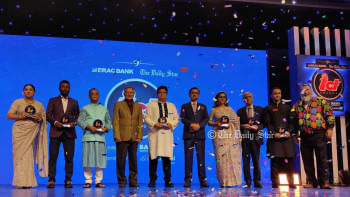Bepza moves to stop use of fake import permits

In the past one and a half years, at least 26 import consignments were identified by customs to have used fake import permits of 13 companies
Bangladesh Export Processing Zones Authority (Bepza) has taken a number of steps, including connecting to customs management software, to prevent the use of fake import permits following the detection of such malpractices this year.
Import permits are issued by Bepza against every import of listed export-oriented companies for the lifting of duties.
Earlier, customs officials had to log in to the Bepza website every time they had to check the authenticity of an import permit.
Moreover, companies based inside export processing zones import goods through a one stop service which get clearance through nominal scrutiny, alleged a customs official.
Customs officials said a section of importers took advantage of these submitting fake import permits during rush hours.
In the past one and half years, at least 26 import consignments were identified by customs to have used fake import permits of 13 companies.
However, only eight of the consignments comprising liquor, cigarettes and household goods worth Tk 100 crore could be seized after their release from the port. Customs were unable to trace the rest up until now.
Among the names in the fake import permits was that of Dong Jin Industrial (BD) Company, an entity based in an export processing zone.
"We do not know who used our company's identity," Gazi Md Maqsud ur Rahim, the company's deputy general manager, told The Daily Star.
"We produce artificial hair and hair-related products for export. However, the customs documents stated that the seized liquor was declared as yarn although our factory does not need yarn," he said.
In a letter to the chairman of the National Board of Revenue (NBR) at the end of July this year, Bepza informed that forged and expired import permits of export processing zone-based companies.
A probe report of Customs House, Chattogram observed that such crimes could not be possible without involvement of customs and port officials.
The inquiry committee made several recommendations, including verification of the authenticity of import permits both verbally and online.
Subsequently, Bepza developed an interface with ASYCUDAWorld, a customs management software now running in more than 80 countries and territories, including customs of Bangladesh.
It allows customs administrations and the business community from around the globe to process electronic documents stored in databases installed on servers, which also enable exchanges with national or international entities.
In effect, it speeds up the trade process complying with recognized international norms and standards.
Enabled since September this year, this system does not accept the unique codes of import permits if they are fake or expired. It also enables revenue officials to check the authenticity of import permits.
"We have also given list of clearing and forwarding agents of the companies operating in the export processing zones and names of authorised persons," said Bepza Executive Director (Public Relation) Nazma Binte Alamgir.
"We hope that the malpractices will not occur," she said.
These two steps were mentioned in a six-point recommendation the Custom Intelligence and Investigation Directorate (CIID) recently made to the NBR.
The CIID had also suggested that the NBR accept all fees, tax and duties online so that malpractices could be traced. Introduction of the systems will help prevent malpractices, said CIID Director General Mohammad Fakhrul Alam.


 For all latest news, follow The Daily Star's Google News channel.
For all latest news, follow The Daily Star's Google News channel. 



Comments